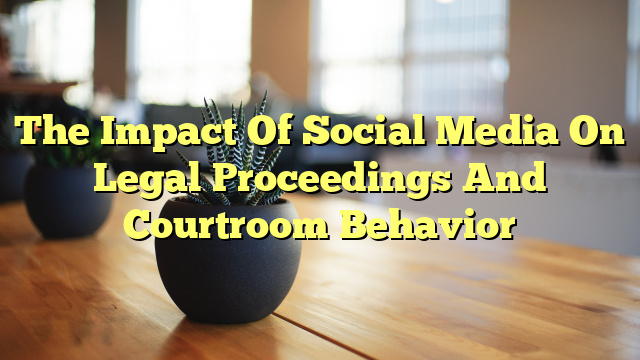Table of Contents
- Introduction
- How Does Social Media Affect Court Cases?
- How Does The Media Affect Court Cases?
- Can Social Media be Used in Legal Proceedings?
- Should We Use Social Media as Evidence in Court Proceedings?
- Conclusion
Introduction
Social media is now a major part of our everyday lives. It is a powerful tool for communication, expression, and connection, and has become an essential part of how we interact with our friends, family, and even strangers. It has also had a profound impact on legal proceedings, specifically in courtrooms. Social media can affect court cases in both positive and negative ways, from its influence on jurors and witnesses to its potential use as evidence in legal proceedings. This article will explore how social media is affecting court cases and what implications this has for the future of legal proceedings.
How Does Social Media Affect Court Cases?
The impact of social media on court cases can be both positive and negative. On the one hand, it can be used to provide a platform for witnesses and jurors to share their experiences and perspectives on a case. This can help to provide a more comprehensive understanding of the trial and the evidence presented. On the other hand, social media can also be a source of misinformation and bias in court cases, leading to unjust outcomes.
The influence of social media can be seen in how jury members interact with each other and the evidence presented in a court case. Many jurors now have access to social media platforms, which can have a significant impact on how they interpret the evidence and the proceedings. For example, jurors may be influenced by the media coverage of a particular case or by the opinions shared by their friends and family. This can lead to biased or incorrect judgments, as jurors may be swayed by outside influences rather than considering the facts of the case objectively.
The influence of social media can also be seen in how witnesses interact with the proceedings. Witnesses may be more likely to share their experiences and perspectives on a case on social media, which can lead to more accurate testimonies. However, this can also lead to false testimonies or biased opinions being shared. Social media can also be a source of pressure on witnesses, as their experience of a case may be influenced by comments or opinions shared by their peers.
How Does The Media Affect Court Cases?
The media can also have an influence on court cases. It can be used to both inform the public on a particular case as well as to sway public opinion. This can have a direct effect on the outcome of a case, as jurors may be influenced by the media coverage or public opinion. This can lead to biased or incorrect judgments, as jurors may be swayed by outside influences rather than considering the facts of the case objectively.
The media can also be used to spread misinformation and false information about a particular case. This can lead to inaccurate public perceptions of the case, which can in turn have an effect on the outcome of the proceedings.
Can Social Media be Used in Legal Proceedings?
Social media can be used in legal proceedings in a variety of ways. It can be used as a source of evidence, as posts and messages can provide insight into a person’s character or behavior. It can also be used as a platform to share information and opinions on a trial, as witnesses and jurors can share their experience and perspective on the proceedings. Social media can also be used to inform the public on the details of a case, as news outlets can use social media to provide updates and background information.
Should We Use Social Media as Evidence in Court Proceedings?
When it comes to using social media as evidence in court proceedings, there are both pros and cons. On the one hand, it can be a powerful and informative source of evidence, as it can provide insight into a person’s character and behavior. On the other hand, it can also be a source of misinformation and false information, as it can be used to spread lies and inaccuracies.
Ultimately, the decision to

